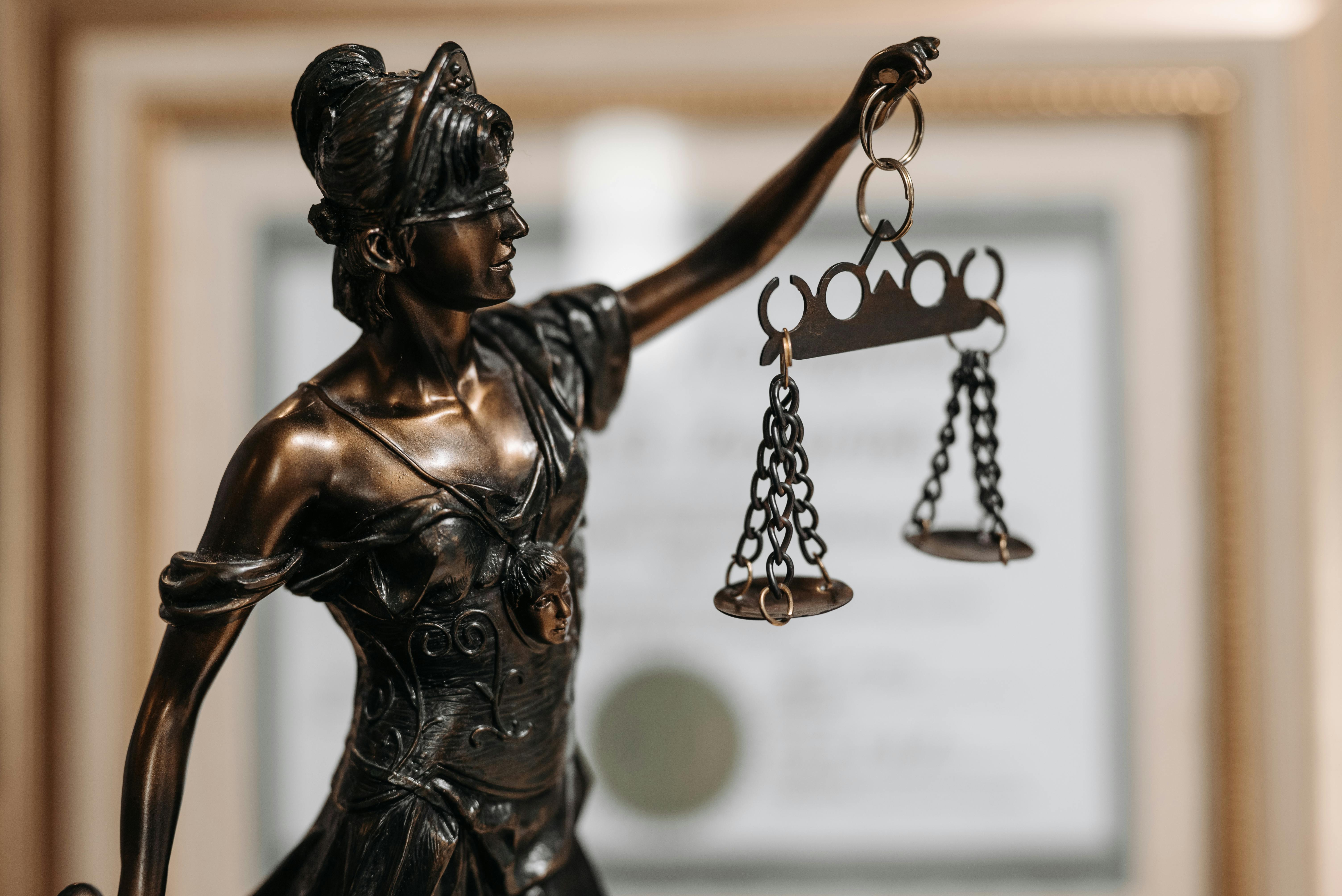
Understanding current trends in debt collection litigation helps funders maximize recovery, maintain compliance, and leverage the expertise of a local debt collections attorney.
When a client or business partner fails to pay what they owe, it can disrupt your cash flow, operations, and financial planning. For business creditors, navigating the legal avenues to recover unpaid debts is no small task. This is where a skilled collections attorney becomes a valuable asset.
This guide explains what a collections attorney does, how they help business creditors enforce payment, and why working with a dedicated legal partner can lead to faster, more strategic debt recovery.
A debt collection attorney is a licensed legal professional who helps businesses recover unpaid debts from other companies or individuals. Unlike collection agencies, attorneys for debt collection can take legal action, obtain court judgments, and enforce those judgments using legal tools that non-lawyers cannot access.
When it comes to recovering unpaid debts, hiring an attorney for collections often yields faster and more reliable results than relying on traditional third-party collectors. Unlike standard agencies that may lack legal authority, a collection attorney can take immediate legal action, such as filing lawsuits, enforcing judgments, or initiating asset recovery, when a debtor refuses to pay. This added legal weight not only increases the pressure on the debtor but also opens up more powerful tools for enforcement. With an attorney guiding the process, creditors benefit from a more strategic, compliant, and results-driven approach to debt recovery.
When emails and calls fail, businesses often realize the need for formal legal action. That’s when searches for a collections attorney near me turn into strategic legal consultations aimed at results, not reminders.
Business-to-business (B2B) debt recovery requires a deeper understanding of commercial contracts, corporate liability, and legal remedies. A skilled attorney for debt collection offers more than just legal filing; they provide strategy.
Many creditors begin with searches like "attorney debt collection" or "debt collection attorneys" because they know litigation may be the only option left.
To recover what your business is owed, a collections attorney may use several legal mechanisms:
These tools make a significant difference when you’re facing commercial debtors who delay, ignore, or intentionally evade payment.
When hiring a lawyer for debt collections, especially for business debts, look for the following:
Also, choose an attorney who handles their own litigation rather than outsourcing it. This allows for consistent case handling and better client communication.
Here are signs it’s time to bring in a debt collection lawyer:
When collection efforts stall and your internal resources are exhausted, legal action becomes the next step.
A collections attorney in New York offers the legal power and strategic knowledge needed to recover unpaid business debts. Unlike agencies or internal collections teams, a qualified attorney can litigate, enforce, and follow through on judgments.
When it's time to escalate collections, don't settle for generic solutions. Work with a legal partner that understands how to protect your business's financial interests through proven legal strategies.
If you're searching for a trusted attorney for debt collection or looking to escalate an overdue commercial account, David I. Mizrahi Law P.C. is ready to help.
A collections attorney can file lawsuits and enforce court orders, while agencies can only attempt voluntary recovery.
Depending on the debtor's assets and strategy, recovery rates are often higher with legal enforcement.
That depends on the amount and the likelihood of recovery. We offer strategic consultations to help you decide.
Yes. We assist with domestication and enforcement of out-of-state judgments for business creditors.

Understanding current trends in debt collection litigation helps funders maximize recovery, maintain compliance, and leverage the expertise of a local debt collections attorney.

Local legal expertise ensures funders and lenders can efficiently recover debts, enforce contracts, and protect their business interests with a skilled debt collections attorney.
.jpg)
Enforcement of judgment is the key mechanism that allows commercial creditors and MCA funders to turn court victories into actual financial recovery.

Understanding the difference between enforcement of judgment and judgment collection helps creditors choose the most effective strategy to turn a court ruling into actual payment.

Merchant cash advance collections can disrupt business credit and financing opportunities, but proactive legal strategies and timely resolution can help limit long-term damage.

Usury and recharacterization claims are common defense tactics in MCA disputes, but strong contracts and strategic legal defense allow funders to enforce agreements effectively.

This article explains why commercial creditors need a judgment collections attorney to enforce court judgments across state lines, navigate multi-jurisdictional laws, locate debtor assets, and significantly increase recovery rates.

A post-judgment attorney protects funders from costly enforcement mistakes and maximizes successful judgment recovery through strategic legal action.

This guide explains when funders should turn overdue accounts over to a debt collection lawyer to protect recovery rates and enforce stronger legal remedies.

Working with an experienced Collection Attorney gives commercial creditors the legal power and strategic support needed to significantly increase their post judgment recovery rate.

A complete 2025 guide for funders on which U.S. states require commercial financing disclosures, deal thresholds, and practical compliance strategies.

This article explains how MCA funders can stay compliant by avoiding disguised-loan pitfalls, strengthening contracts, and partnering with collections attorneys to enforce receivables and recover funds effectively.

A clear guide explaining how creditors can legally revive dormant New York judgments and the role of a judgment enforcement attorney in the process.

New York’s 20-year judgment lifespan offers creditors extensive enforcement power, but strict renewal rules and complex lien timelines make strategic legal guidance essential.

This blog shows how MCA funders can use AI for smarter commercial debt recovery while relying on a collections lawyer to ensure compliance, enforceability, and risk mitigation.

This blog explains when courts may treat very small business debts like consumer debt and shows how MCA funders can use a collections attorney to ensure compliant, enforceable debt recovery.

Explore how changing laws, court rulings, and enforcement trends are reshaping merchant cash advance (MCA) collections — and what funders must do to stay compliant.

This article explains how interest, fees, and legal costs influence the real price of business debt collection and how attorneys help companies manage and reduce these costs effectively.

Learn how partnering with a collections attorney helps businesses prevent nonpayment by creating enforceable, legally compliant credit agreements tailored to commercial needs.

Through legal discovery, subpoenas, and forensic analysis, a judgment collection lawyer can identify and unwind these fraudulent transfers, ensuring creditors get the justice they’re owed

A dormant judgment doesn’t have to mean a lost opportunity. But once time runs out, recovery becomes far more difficult, sometimes impossible.

This guide helps small business owners recognize red flags in merchant cash advance agreements, backed by recent rulings and insights from experienced MCA attorneys who focus on fraud and contract disputes.

Smart contracts are reshaping Merchant Cash Advances, streamlining processes while raising new legal complexities.

Judgment debt attorneys adapt to evolving court procedures with strategies that help businesses enforce judgments effectively and recover what they’re owed.

New Jersey businesses must understand debt collection laws, making a debt collection attorney critical for compliance and recovery.

A deep dive into New York City’s new debt collection rules and how a collections attorney can guide funders toward compliance.

Learn how collections law firms help businesses recover unpaid debts with legal authority, enforcement strategies, and compliance expertise.

NYC’s new debt collection rules are reshaping how MCA funders and creditors manage recovery, making it crucial to work with an experienced collections attorney to ensure compliance and protect financial interests.

Recent New York rulings are redefining MCA contract enforcement, making it crucial for funders, investors, and business owners to review agreements, ensure compliance, and work with experienced attorneys to safeguard their financial interests.

Recent New York MCA case law clarifies contract enforcement and risk management, helping funders protect their investments with the guidance of a skilled MCA attorney.